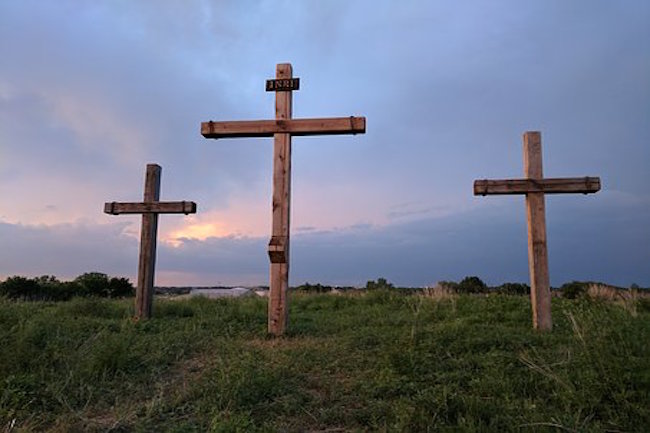They Can Keep Christians From Holy Week Services, But Nothing Can Stop Easter By Joy Pullmann for The Federalist
This week especially, I feel each additional incarnated religious tradition destroyed by ‘social distancing’ edicts as a fresh wound. It is a true and deep loss to be forced from our churches during Holy Week.
My friends were posting cute pictures of their kids all dressed up for “church at home” this past Sunday, waving their palm fronds, ready to watch a Palm Sunday livestream. I wished I could suck it up and pretend to be that cheerful, at least for the kids. But I couldn’t get myself to do it.
Our church and orders of service are precious to me, and our congregation. The things our pastors say, do, and wear are have been cultivated over centuries. We worship this way on purpose. Everything has a meaning, and has been carefully selected, debated among clergy and lay people, and thoughtfully placed.
Unlike the kinds of evangelical churches I grew up in, nothing in our services are random, or the production of one person, one church, one pastor, or locality. It is comprehensive, ordered, painstakingly thought through, the production of the whole church over centuries. It’s not just this way for some general service; this theological craftsmanship envelops the entire church year. Every Sunday and season has its place in an orchestrated tapestry. These centuries of labored love culminate in our highest holy days, this week.
Like Christians have for hundreds, thousands of years, our congregation is used to gathering and carrying out special, very specific, highly meaningful, and carefully ordered scripture readings, prayers, hymns, and services. They are rituals created by centuries of tradition, and thus exceedingly rich.
This humbling before our ancestors in the faith going back to the great apostles is a chief reason I left rootless evangelicalism to become Lutheran, which I consider catholic the way Catholics ought to be. I wanted to belong to something bigger and better than myself and my age. Something outside myself that instructs, shapes, and bends me, rather than being small and petty enough for me to shape and bend as I will. That’s what transcendence means.
It is also what respect and reverence mean: Not trashing one’s inheritance for ignorant and temporary comfort. This inheritance delivers what I need so badly — more than anything else, in fact. Christ’s own body and blood come to me as He did: physically. Incarnated. Embodied. The manner in which we take God himself into our own bodies matters, and that we do so is necessary to our faith and eternal life. My religion teaches this, and I believe it.




